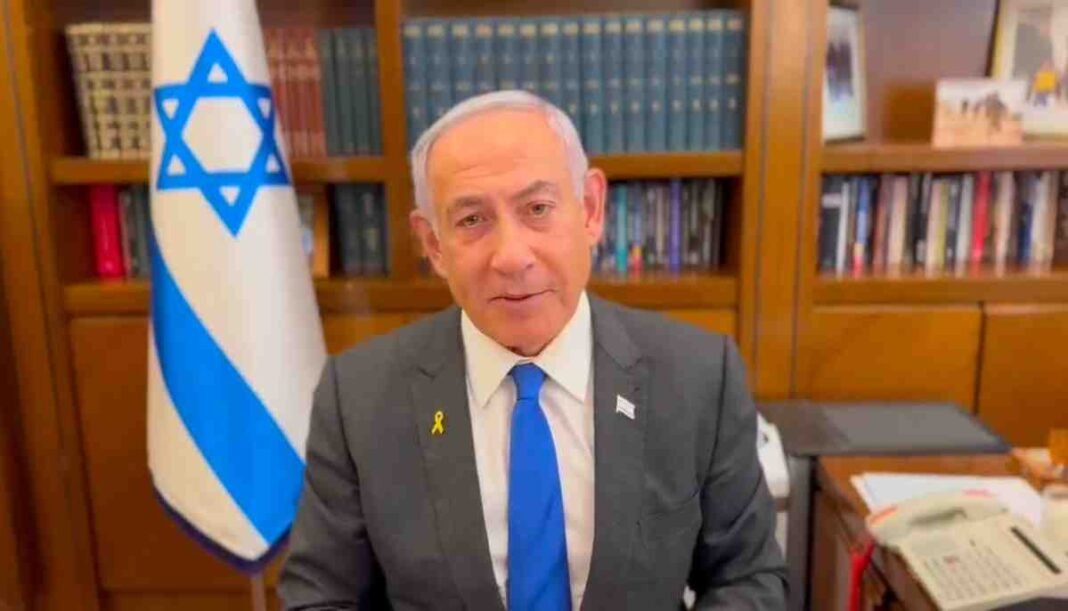In a recent video message, Israeli Prime Minister Benjamin Netanyahu expressed gratitude to the U.S. President Donald Trump for lifting a hold on a shipment of munitions intended for Israel. This decision, which involves the release of 2,000-pound bombs, is seen as a significant boost to Israel’s defense capabilities.
Netanyahu highlighted the critical nature of this move, stating, “Thank you, President Trump, for keeping your promise to give Israel the tools it needs to defend itself, to confront our common enemies, and to secure a future of peace and prosperity.”
His remarks underscore the ongoing security challenges faced by Israel and the importance of military support from the United States.
The announcement came on Saturday night when Trump revealed on his social media platform, Truth Social, that he had removed a hold that had been placed by current President Joe Biden on the shipment.
Trump wrote, “A lot of things that were ordered and paid for by Israel, but have not been sent by Biden, are on their way!” This statement reflects Trump’s ongoing commitment to Israel’s military needs and his criticism of the Biden administration’s policies regarding defense support.
In addition to Netanyahu’s comments, Israel’s Foreign Minister Gideon Sa’ar also expressed his appreciation for Trump’s decision. He took to social media platform X to thank the president, stating, “Thank you, President Trump, for yet another display of leadership by releasing the crucial defense shipment to Israel.
The region is safer when Israel has what it needs to defend itself.” Sa’ar’s remarks highlight the broader implications of military support for Israel’s security and stability in the region.
The lifting of the hold on the bomb shipment marks a significant shift in U.S. policy towards Israel, particularly in the context of the ongoing tensions in the Middle East.
The Biden administration had previously placed restrictions on certain military sales, citing concerns over escalating violence and the need for diplomatic solutions to regional conflicts. However, Trump’s recent actions suggest a return to a more aggressive stance in support of Israel’s military capabilities.
This development comes at a time when Israel faces numerous security challenges, including threats from militant groups and ongoing tensions with neighboring countries. The availability of advanced munitions is seen as essential for Israel to maintain its defense posture and respond effectively to any potential threats.
The relationship between the United States and Israel has historically been characterized by strong military and diplomatic ties. However, the recent political landscape has introduced complexities into this relationship, with differing approaches to foreign policy and defense support.
Trump’s decision to lift the hold on the bomb shipment may signal a renewed focus on military assistance to Israel, contrasting with the more cautious approach taken by the Biden administration.
As the situation in the Middle East continues to evolve, the implications of this decision will likely be closely monitored by both Israeli officials and U.S. policymakers.
The dynamics of U.S.-Israel relations remain a critical factor in regional stability, and the availability of military resources is a key component of Israel’s strategy to address security threats.
Netanyahu’s expression of gratitude towards Trump, along with Sa’ar’s supportive comments, reflects a significant moment in US-Israel relations. The lifting of the hold on munitions is viewed as a vital step in ensuring Israel’s ability to defend itself amid ongoing regional challenges.
As both countries navigate the complexities of their relationship, the impact of military support will continue to play a crucial role in shaping the security landscape of the Middle East.








